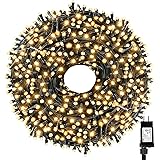City begins refilling Calgary’s critical water main after repairs

The City of Calgary began refilling the Bearspaw south feeder main with treated water on Tuesday morning, marking an important step closer to the end of ongoing water supply issues in the area.
The city says filling the large feeder main will take three days and 22 million litres of water, therefore water demand will increase by seven million litres per day.
“This will not impact the amount of potable water available for customers,” said Francois Bouchart, the City of Calgary’s director of capital priorities and investment, on Tuesday afternoon.
It comes after the Bearspaw south feeder main — the pipe which distributes the majority of Calgary’s treated water — was shut down again at the end of August for further repairs.
In response, the Glenmore Water Treatment Plant is producing approximately 70 per cent of Calgary’s water supply, much more than the 30 per cent it typically handles at this time of year, according to city officials.
Keeping water usage at 485 million litres or below per day in Calgary means the older, smaller Glenmore plant can be operated safely without any undue strain on the system.
Restrictions still in effect
While the city approaches an expected end to mandatory Stage 4 outdoor water restrictions next weekend, Calgary water usage on Monday remained in the “yellow” or “strained” zone, as 492 million litres of water was used on Monday, up from Sunday’s 489 million litres.
It means daily potable water usage again peaked above the sustainability threshold of 485 million litres.
Residents of Calgary and the surrounding communities that rely on its water supply — such as Airdrie, Strathmore, Chestermere and Tsuut’ina Nation — are still expected to reduce indoor water consumption until the pipe is officially back in service.
Bouchart says the water being used to refill the Bearspaw south feeder main will come from the Bearspaw Water Treatment Plant, making it separate from what is coming from the rest of the city’s limited distribution system.
“We are nearing the finishing line, but I want to remind you that until the feeder main has been reconnected to the rest of the system, it remains very important that we continue to reduce our water use,” said Bouchart.
As for road closures, Bouchart also added that the city expects to reopen 33rd Avenue N.W. east of 83rd Street later this afternoon.
Meanwhile, 33rd Avenue N.W. from 83rd Street to 87th Street is scheduled to reopen later this week.
View original article here Source









